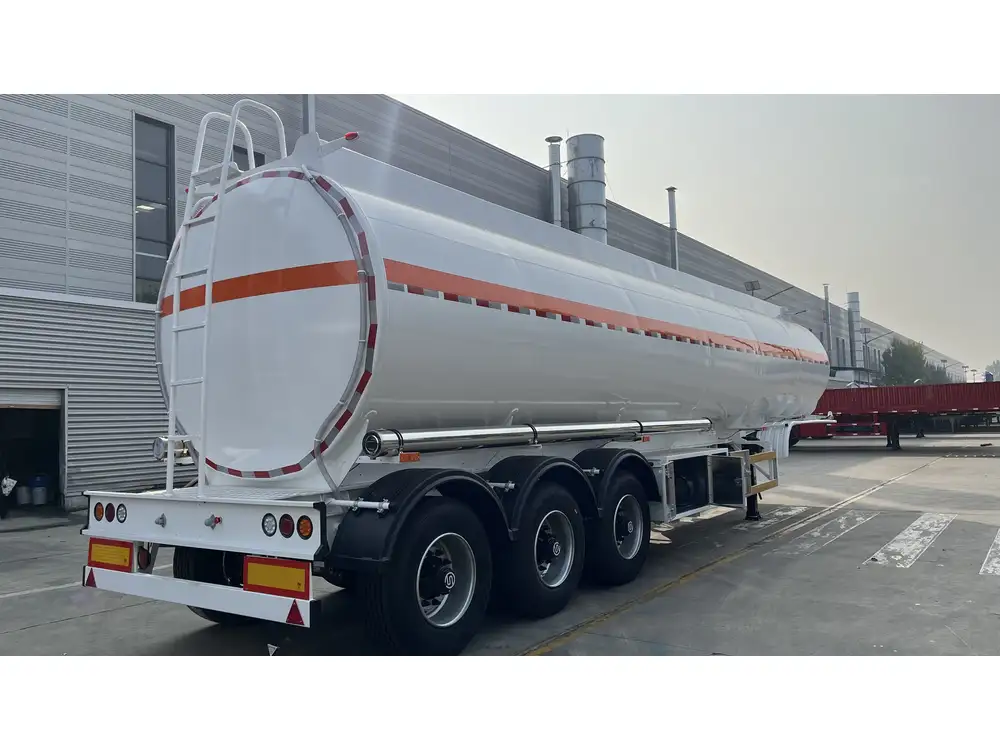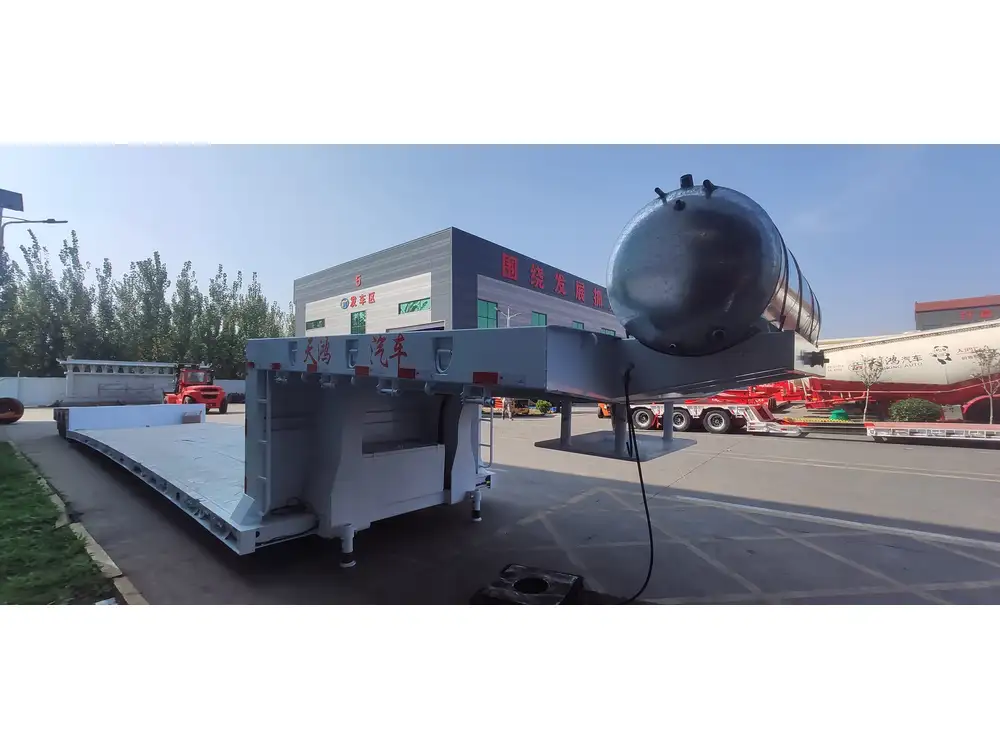Managing trailer waste effectively is a critical concern for operators in the transportation sector, primarily due to environmental regulations and logistical ease. Improper disposal can lead to hefty fines, operational delays, and ecological damage. Below, we delve into the right practices and locations for dumping trailer waste, ensuring compliance and efficiency.
Understanding Trailer Waste: Classification and Types
Before discussing disposal methods, it’s essential to identify the types of waste generated by trailers. The classification of trailer waste includes:
| Type of Waste | Description | Example |
|---|---|---|
| Solid Waste | Waste that does not liquefy | Packaging materials, wood |
| Liquid Waste | Includes hazardous and non-hazardous liquids | Fuels, oils, cleaning fluids |
| Hazardous Waste | Toxic or dangerous materials requiring special care | Batteries, chemicals |
| Biodegradable Waste | Organic waste that can decompose | Food scraps, paper |
Understanding the nature of your waste is vital for determining the correct disposal method, which we elaborate on in the following sections.
Legal Considerations: Regulations that Govern Waste Disposal
Each region comes with its own set of regulations for waste disposal. Familiarizing yourself with local laws can prevent complications. Key regulations include:
Environmental Protection Agency (EPA) Guidelines:
- The EPA provides comprehensive standards on hazardous waste disposal. Operators must adhere to these guidelines, especially for hazardous substances.
State-Specific Regulations:
- States may have stricter rules. For instance, California’s regulations are known to be more stringent compared to others.
Local Ordinances:
- Cities and municipalities often impose specific disposal protocols that may vary from broader state regulations.
Failing to comply with these regulations could result in severe penalties, including fines or prohibition from operating licenses.

Identifying Waste Disposal Locations
Finding the right disposal location is crucial for both efficiency and legality. Below are the primary options available for trailer waste disposal:
1. Waste Management Facilities
These facilities are the mainstay for any type of waste disposal, providing regulated environments to dispose of solid, liquid, and hazardous waste. Most facilities include:
- Landfills: Best suited for solid waste that cannot be recycled. Ensure the landfill is licensed to handle specific types of waste.
- Transfer Stations: These are temporary holding areas where waste is consolidated for transportation to landfills or recycling centers.
2. Recycling Centers
For those aiming to reduce environmental impact, recycling centers are ideal for:
- Cardboard and Paper Waste: Easily recyclable and often accepted in bulk.
- Plastic Containers: Always check their guidelines, as many accept plastic but specify types.

3. Hazardous Waste Collection Sites
For hazardous waste, specialized facilities are essential:
- Periodic Collection Events: Many municipalities hold events for the disposal of hazardous materials.
- Permanent Facilities: Some areas have dedicated facilities open year-round for hazardous waste drop-off.
4. Local Landfills with Waste Diversion Programs
Increasingly, landfills provide waste diversion and recycling programs that encourage the sorting of waste into reusable categories. Check if your local landfill offers these services.
Best Practices for Waste Disposal

A. Sorting Waste Thoroughly
Sorting waste at the source can significantly simplify disposal. Implement color-coded bins or designated areas for each waste type.
B. Utilizing GPS Technology
With the advent of technology, applications and GPS tools can direct hauliers to the nearest authorized disposal sites, often with real-time traffic updates to optimize routes.
C. Record Keeping
Maintain meticulous records of waste disposal, which can aid in audits and ensure regulatory compliance. This includes:
- Date and type of waste disposed of
- Location of disposal
- Weight or volume of waste

D. Choosing Licensed Haulers
If you prefer outsourcing waste disposal, ensure that the third-party hauling service you select is licensed and follows all regulatory guidelines.
The Economic Impact of Efficient Waste Disposal
Implementing a robust waste management strategy not only ensures compliance but can also positively affect your bottom line. Here are some economic benefits associated with efficient waste disposal practices:
- Reduced Fines: Compliance with regulations will minimize any potential fines.
- Lower Waste Disposal Costs: Efficient sorting and recycling can significantly lower disposal fees.
- Enhanced Company Reputation: Demonstrating environmental stewardship can improve your brand image, attracting more clients.
Environmental Considerations: The Toll of Improper Disposal
Neglecting proper waste disposal can have dire consequences for our environment, including:
- Soil Contamination: Leachates from improper disposal can infiltrate the soil, leading to harmful chemicals leaching into groundwater.
- Air Pollution: Burning waste without controls releases toxic fumes that can contribute to local air quality issues.
- Harm to Wildlife: Improperly disposed waste can be ingested by animals, leading to health hazards and ecosystem disruption.
To combat these issues, ensure that your disposal methods align with best environmental practices.

Conclusion: Emphasizing Proper Waste Disposal in the Transportation Sector
In conclusion, the question of “where to dump trailer waste” is multifaceted, involving a keen understanding of regulations, local disposal sites, best practices, and the economic and environmental impacts of waste management choices. By staying informed and compliant, operators can contribute positively to both their business and the environment.
Quick Reference Guide: Key Steps to Efficient Waste Disposal
| Step | Action |
|---|---|
| Identify Waste | Classify your waste types |
| Research Laws | Understand local and state regulations |
| Locate Facilities | Find nearby disposal and recycling sites |
| Implement Best Practices | Sort waste, keep records, use technology |
| Monitor & Adapt | Review and improve your waste strategy |
Each step plays a crucial role in building an efficient waste management system, ensuring operational compliance and contributing to environmental sustainability.
In managing trailer waste, operators must be vigilant and proactive, understanding that efficient waste disposal is not just a regulatory obligation—it’s a responsible practice that safeguards our planet for future generations.



